Multiple arrests across Maharashtra, Andhra Pradesh and Telangana since April, point to the sudden rise in blatant hammering of deals for infants spurred by desperate couples, straight and gay, exhausted by adoption delays and discrimination against the queer
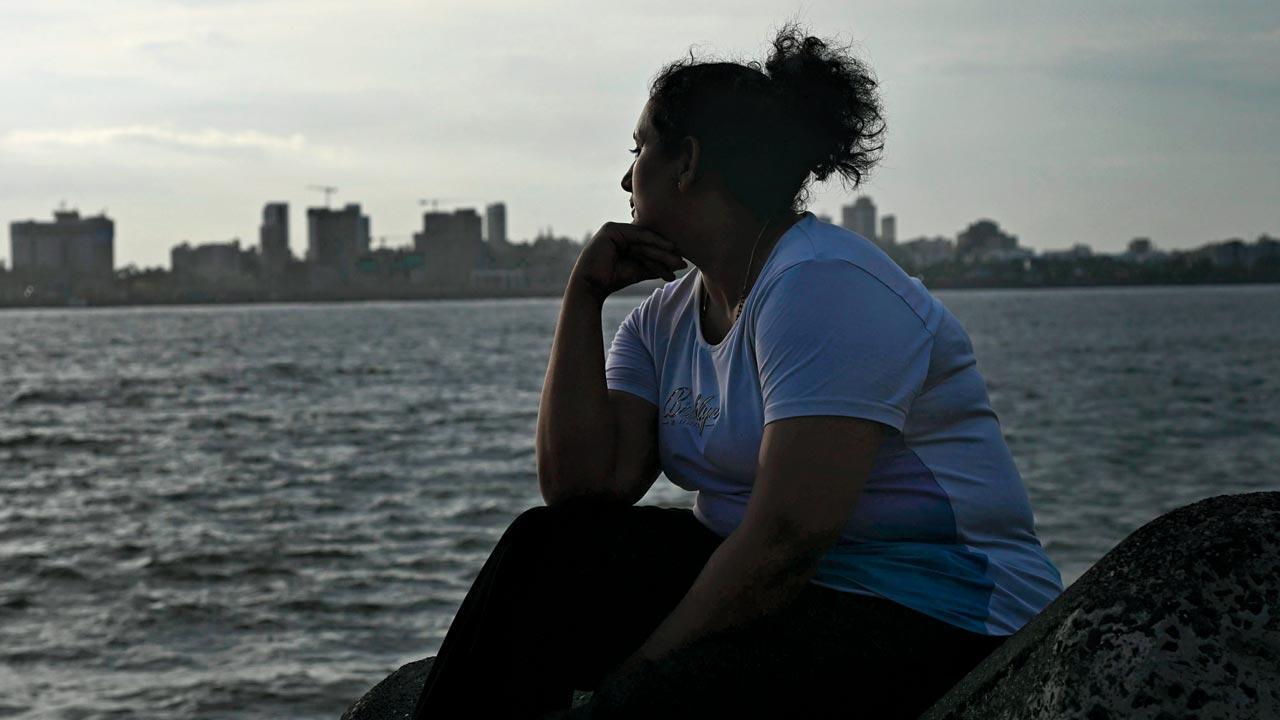
Julia Lawrence Fernandes, 37, an accused in baby trafficking, used to run an IVF centre in Wadala that is now shut. Arrested by the Trombay police in October 2023, she is out on bail and alleges that the charges are false; she was only trying to help childless couples. Pic/Kirti Surve Parade
I am being punished for doing good deeds. I won’t help people anymore, as it has only caused me problems,” says Julia Lawrence Fernandes.
ADVERTISEMENT
She says “good deed”, the police call it “child trafficking”.
The 37-year-old, who heads a now defunct IVF and sonography centre in Wadala, stands accused of selling babies to couples who are desperate for children.
Fernandes and six others were arrested by the Trombay police on October 6, 2023, after one such alleged deal fell through and a newborn was rescued from the trafficking ring.
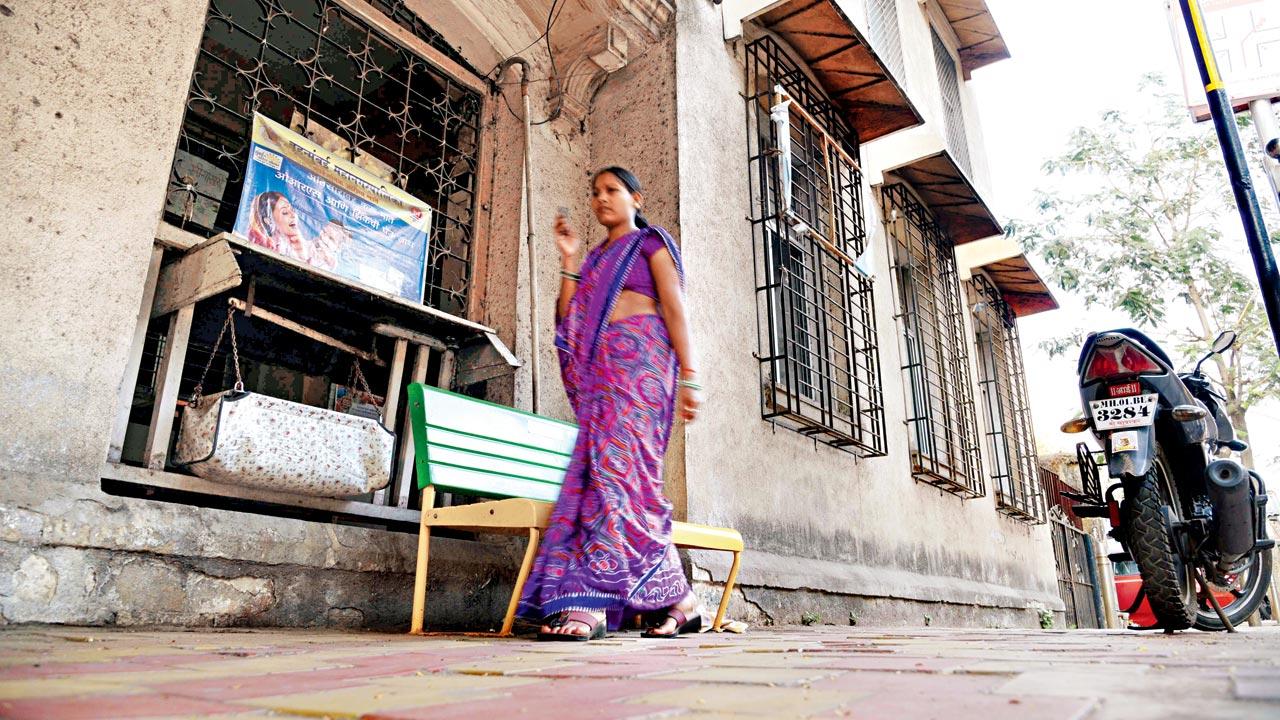 A crib outside municipal maternity hospital, Veer Savarkar Road at Prabhadevi to provide anonymity to parents who might want to surrender infants. NGO workers say that despite cribs being kept outside their premises for safe surrender of babies, very few actually use these. File pic
A crib outside municipal maternity hospital, Veer Savarkar Road at Prabhadevi to provide anonymity to parents who might want to surrender infants. NGO workers say that despite cribs being kept outside their premises for safe surrender of babies, very few actually use these. File pic
“Fernandes was negotiating with someone and was about to sell the baby, but the deal was cancelled and she asked her driver to keep the baby. We were able to rescue the girl child,” say police sources.
The adoption ‘agent’ has been charged in not one, but seven such cases, and cops claim she is the mastermind behind the entire racket. She is now out on bail.
Fernandes, on the other hand, claims she was framed. “I am a mother of two children; how can I sell babies? In all seven cases, the police have not been able to prove anything and the court has granted me bail due to lack of evidence. I have been falsely implicated,” she tells Sunday mid-day.
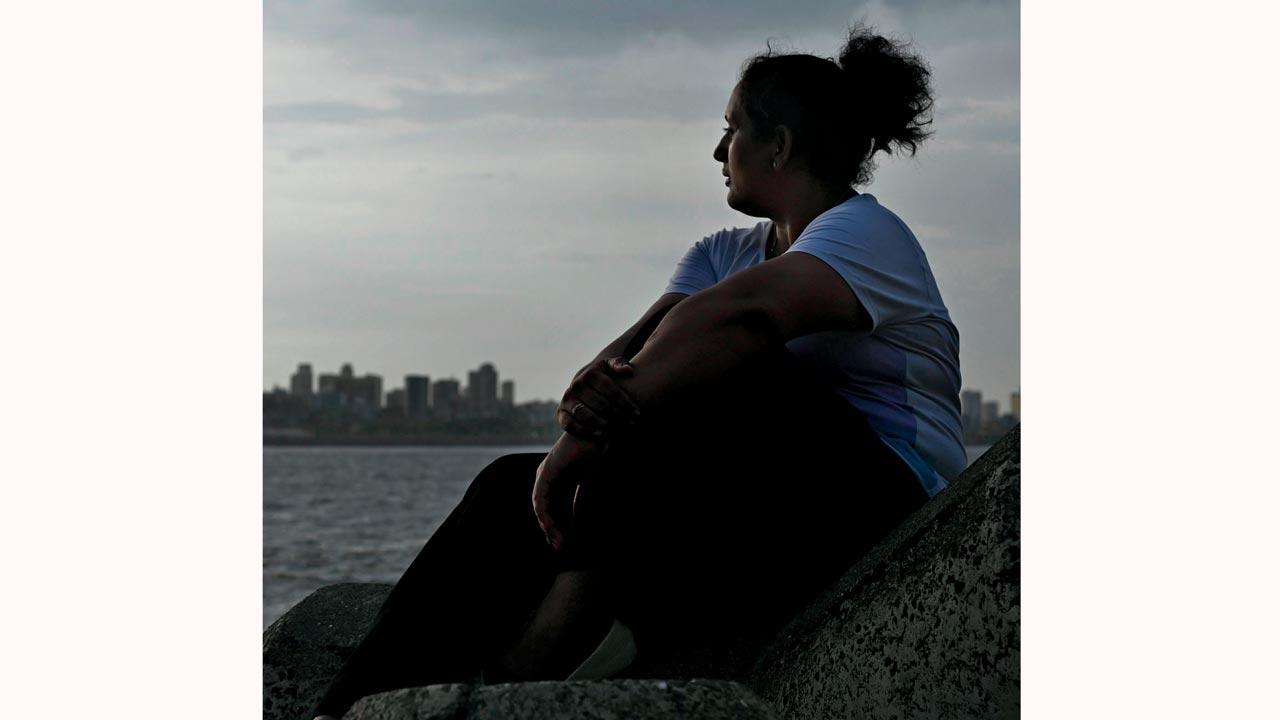 Out on bail, alleged adoption agent Julia Fernandes insists that she was helping a childless couple and says the police have framed her for child trafficking. Pic/Kirti Surve Parade
Out on bail, alleged adoption agent Julia Fernandes insists that she was helping a childless couple and says the police have framed her for child trafficking. Pic/Kirti Surve Parade
This wasn’t the first time Fernandes was arrested. In 2017, the Wadala TT police apprehended her on charges of selling an infant. Again, Fernandes claims that
she was simply trying to help a childless couple. “I had introduced a couple who had an unwanted child to another couple who wanted a child. I arranged for a lawyer and the baby was supposed to be adopted after a full legal process was followed by the civil court,” she says.
It’s not out of the goodness of her heart that she facilitated this meeting, say police officers. According to the cops, Fernandes charges prospective parents lakhs in exchange for a baby. She allegedly then sources the infants from poverty-stricken families for a fraction of the amount, they say.
Most of Fernandes’s customers hail from Maharashtra, say the police, adding that she allegedly sourced babies from the slums of Mumbai, Thane and Kalyan.
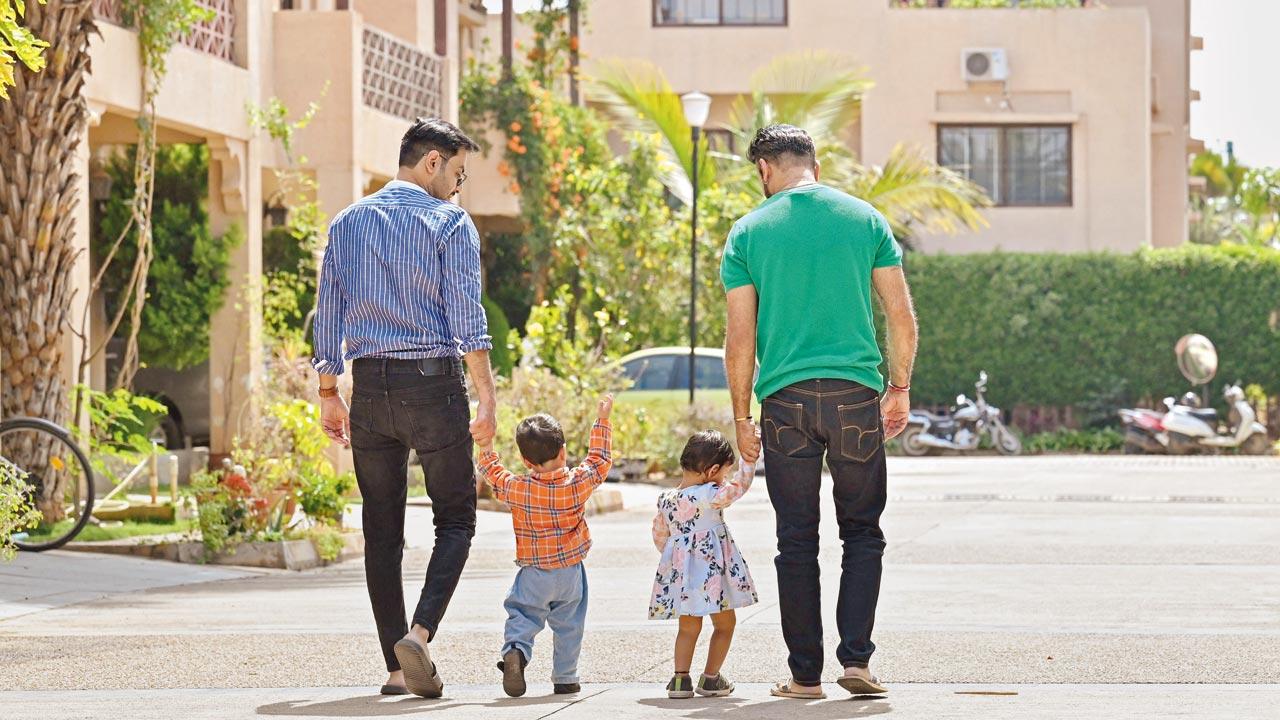 Gay men began to adopt soon after decriminalisation of same-sex relationships, and now await legal clarity on their parental rights. File pic/Getty Images
Gay men began to adopt soon after decriminalisation of same-sex relationships, and now await legal clarity on their parental rights. File pic/Getty Images
“Negotiations are done on WhatsApp. She sends photos of the babies through the same app. She also convinces couples with an unwanted baby to sell the infant. We have established all the digital evidence against her,” the officers say, adding, “She thinks babies are commodities to be purchased from the market.”
Child traffickers have no shortage of buyers in India, where adoption procedures can take as long as three to five years, with no guarantee that the prospective parents will get a child at the end of their wait. There is, however, a dearth of children available for legal adoption. According to the Central Adoption Resource Authority (CARA), there are 34,801 prospective adoptive parents (PAPs) waiting to find a match from the far smaller group of 2,144 children up for adoption.
The demand-supply gap, accompanied by bureaucratic delays and draconian restrictions—including who can and can’t legally adopt—have pushed many couples yearning for parenthood straight into the snare of baby-selling touts. The rescued babies are sent to the CWC approved NGO’s for further care.
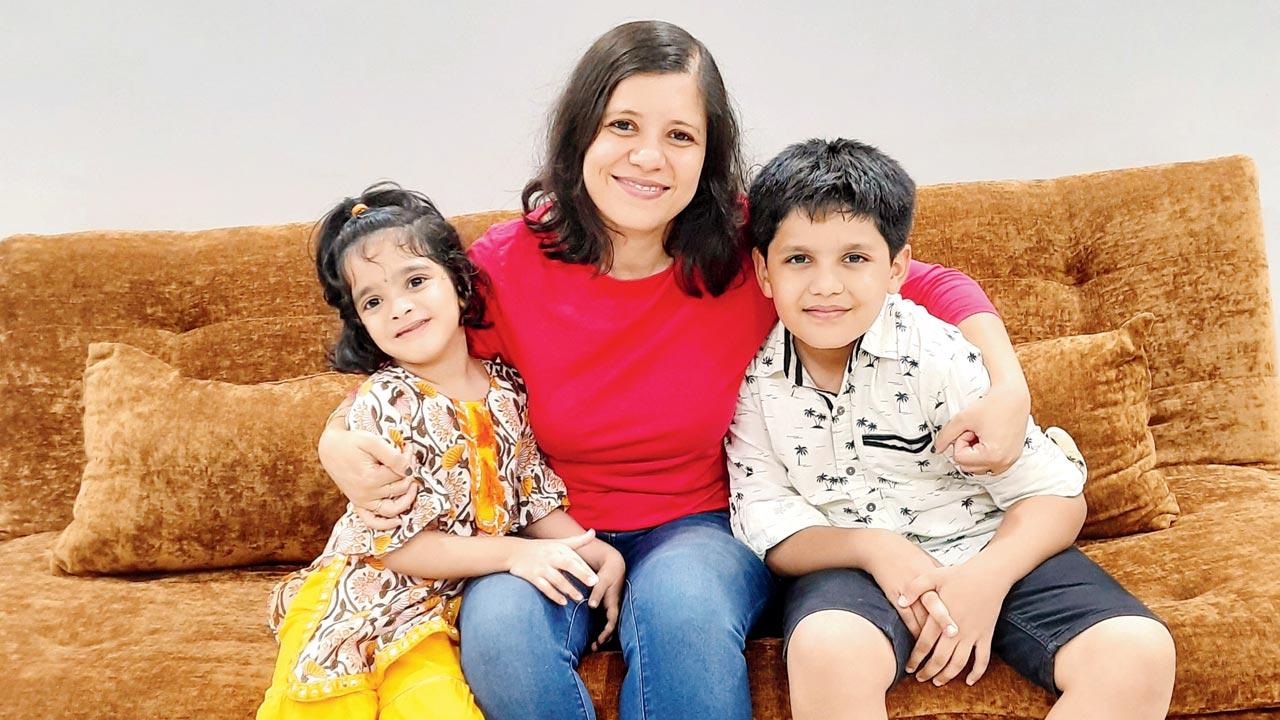 Adoption activist Neha Goel with her adopted daughter Oorvi, 7, and biological son Ojas, 11. Goel now helps prospective parents navigate tedious red tape
Adoption activist Neha Goel with her adopted daughter Oorvi, 7, and biological son Ojas, 11. Goel now helps prospective parents navigate tedious red tape
But what happens when these rackets get busted? For one adoptive father based in Hyderabad, it was his worst nightmare comes true. After struggling for years with the onerous adoption process, he gave in to temptation and opted to adopt through an agent. But within a couple of months, as the Hyderabad police began a massive crackdown on adoption rackets running in the city, his adopted son—a one-year-old— was taken away by the cops.
“The baby came into my life just a couple of months ago, and then the police came and snatched my child away from me. I am devastated. I cared for him, nurtured him. I want my baby back,” he tells Sunday mid-day.
With adoption queues only getting longer, these rackets now seem to be at an all-time high. The past year alone, Mumbai police have made at least three big busts. According to data provided by the crime branch, as many as 41 individuals have been arrested in these raids, and at least 13 infants have been rescued from the racketeers over the past year.
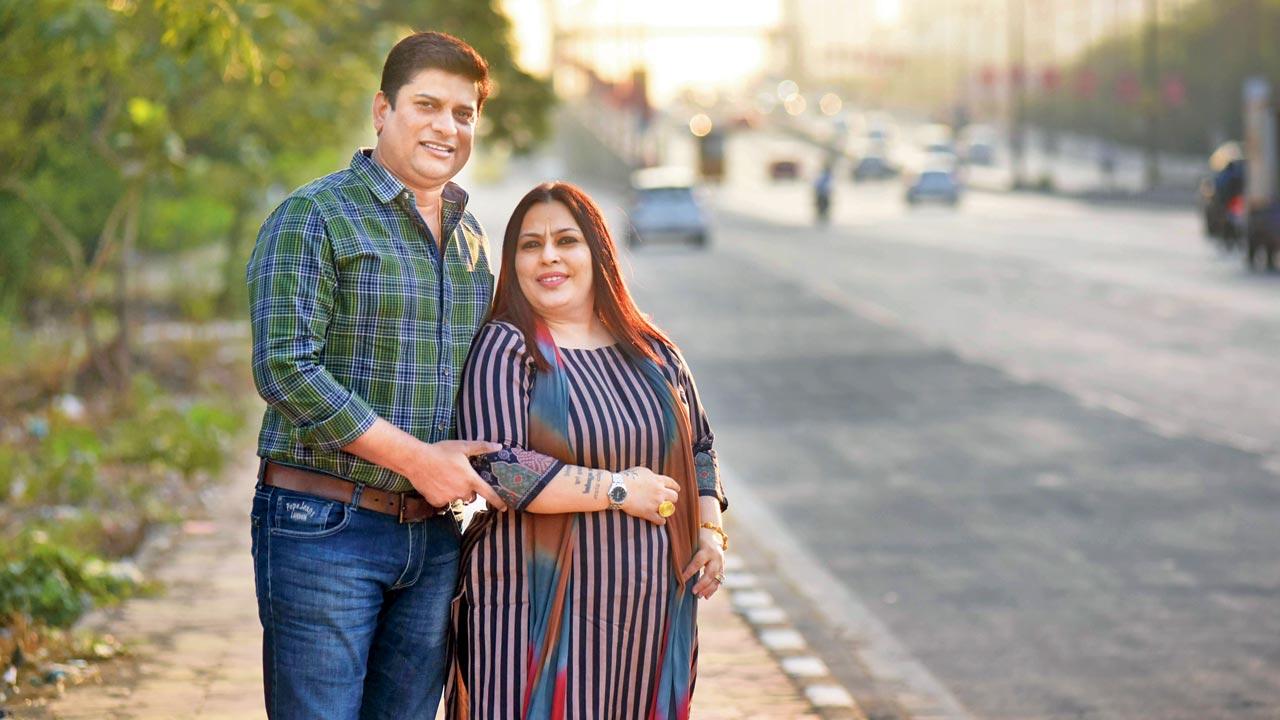 Reetu Uday Kugaji and her husband Uday B Kugaji, who gave up on their dream of adoption after a nine-year wait
Reetu Uday Kugaji and her husband Uday B Kugaji, who gave up on their dream of adoption after a nine-year wait
Most of these arrests have been made in the weeks since April 27, when the Mumbai crime branch blew the lid off an inter-state racket operating across Maharashtra (15 accused arrested from the state), Andhra Pradesh (seven) and Telangana (nine). It started with the arrest of alleged tout Kanta Pendekar in Vikhroli after cops were tipped off that she had sold a five-month-old child to a couple in Ratnagiri for R2 lakh. They then found more such cases in Malad and Latur as well.
As the sleuths investigated further, they discovered that the trafficking ring had spread its tendrils as far as Nizamabad, Hyderabad and Visakhapatnam. The racketeers’ modus operandi became especially clear in Hyderabad, an IVF hub. “We arrested 26 women, five men and one doctor in this matter. Most of the women had been working as agents who donated eggs in IVF centres in Hyderabad,” says DCP (enforcement) Ragasudha R.
According to the police, the agents would find easy targets at these facilities, among couples who had already gone through multiple rounds of IVF in their desperation for a child, to no avail. Cops said the touts would also find couples or single mothers who brought their unwanted children to the IVF centres in the hope of re-homing them. The agents would then persuade these parents to sell their babies.
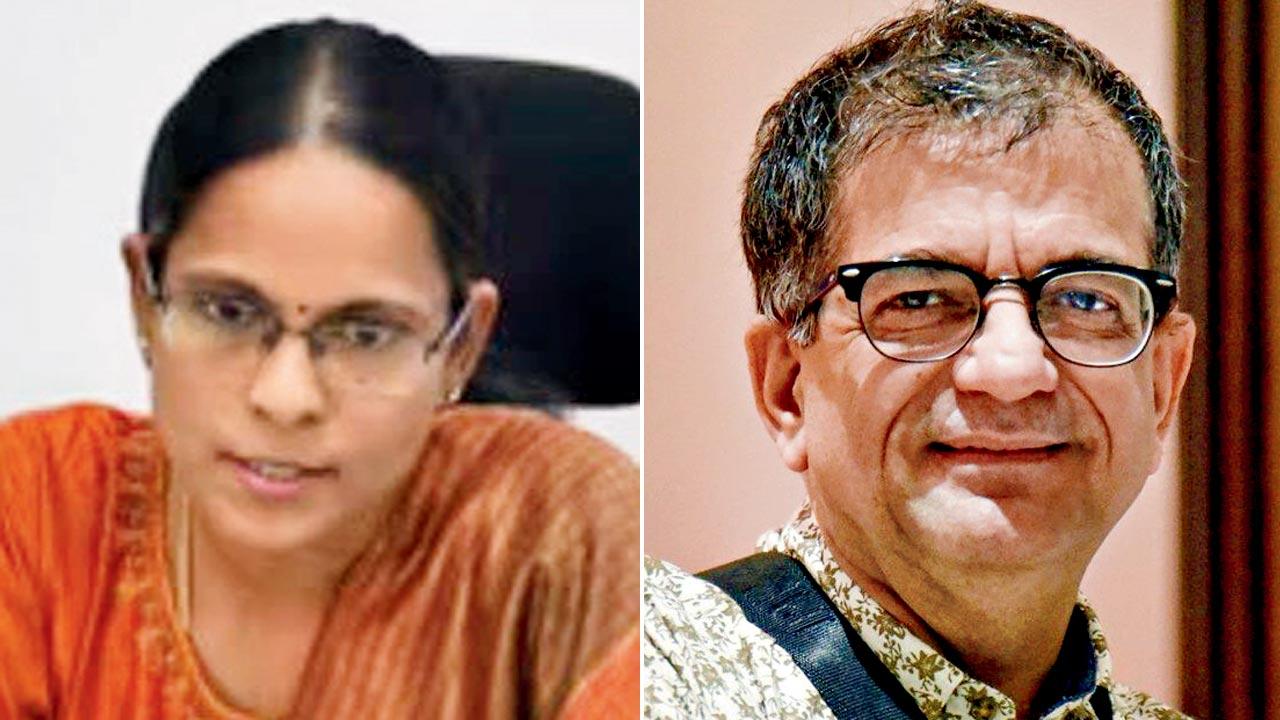 DCP Ragasudha R and Vivek Anand
DCP Ragasudha R and Vivek Anand
The police suspects some of the racketeers may have even resorted to child theft. Investigators found numerous photos of toddlers on the phones of two of the arrested women—Tabassum Sain from Ratnagiri, and Safiya Ali from Grant Road—hinting at a larger trafficking racket, possibly fuelled by child theft.
“The accused sold babies to prospective parents for R7 lakh, and each of them got a share of R40,000 to R50,000,” says an officer, adding, “All of the agents do not know each other, but some of them had developed a network that was fully functional over WhatsApp, and photos of the babies were also sent to prospective parents on WhatsApp. The babies were then moved via public transport.”
Adoption activist Neha Goel, who runs a toy store in Gurgaon and works with NGOs to counsel PAPs, says she knows exactly why the wait for a child is getting longer. “COVID-19 is why we are experiencing delays like never before,” says Goel, adding, “The average wait time for a child was around two years, or maximum three, but now we are seeing a delay of four years or more. Which is why desperation among PAPs is reaching a breaking point.”
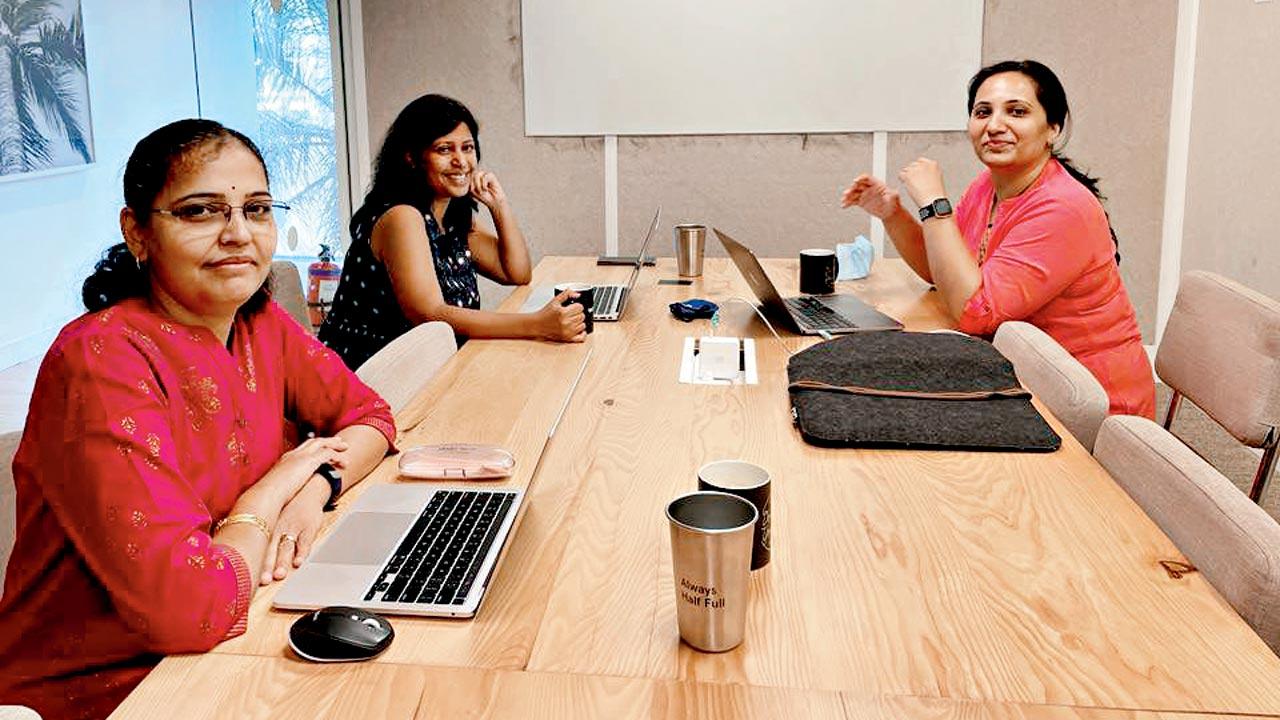 Founders of WAIC, (l) Meera Marthi, Smriti Gupta and Protima Sharma
Founders of WAIC, (l) Meera Marthi, Smriti Gupta and Protima Sharma
“When a PAP registers for adoption, they get what is called a ‘referral’, which is basically the baby that is matched to them. This referral should be sent within a few months of registration, but I know of a case where the couple had registered in 2020 and is yet to receive even a referral,” says the activist.
Recently, the couples’ gynaecologist informed them that an unwanted infant had been born in the hospital. “The woman, who was desperate for a baby, was extremely tempted at first. When she told me about it, I had to impress upon her the risk of taking up this offer. I kept telling her that it’s a matter of only six to seven months, but she was having a sort of breakdown,” Goel adds.
The activist herself adopted a child from Mumbai. She says this is the only city where an adoption hearing takes place in the High Court; in other cities, adoption hearings are conducted in district courts. Unfortunately for prospective parents looking to adopt from Mumbai, this means even further delays, as the HC will have fewer court dates available compared to a district court.
From selecting a child based on photographs on WhatsApp, to getting the infant delivered to their arms within days and not years—the temptation to take the illegal route is hard to resist for many aspiring parents, especially for those who are barred from legal adoption, like unmarried and same-sex couples.
The arrest of a Thane-based gay man in May for purchasing a baby for R4.5 lakh is yet another grim reminder of the inequality surrounding gay marriage and adoption rights.
A member of Mumbai’s LGBTQiA+ community revealed, “After the person was arrested in Thane, there is intense fear among the queer community. If people are trying to find indirect ways to adopt a kid, they are not talking about it.”
Homophobia and stigma are another concern that hold back prospective parents, they said. “People from the community think, ‘Why to destroy a child’s life?’ If they do adopt, the child will be constantly teased that their parents belong to the queer community. People feel that the child would be better off being an orphan, because society will never change, even if the law does,” they add.
A gay man from the city who, along with his partner, has adopted the daughter of their domestic worker, tells Sunday mid-day, “Around seven years ago, our domestic worker got pregnant but didn’t have the money to support a child. So, we adopted the baby girl, and her biological mother lives with us too. The mother is happy too, because she feels the child is well taken care of.”
“Our child doesn’t have any idea that the house help is her mother. She is too young now; we plan to tell her when we think she can take it, but it will be extremely difficult,” he confesses, adding, “What choice did we have? We wanted a baby so bad and this country will never let us adopt one.”
The child has recently turned six, attends school, where the management is aware of the parenting and living arrangements between the gay couple and their domestic worker, but neither the parents nor the school authorities have spelled it out. “We attend all the school meetings with the mother, since she is not literate. The school does know that the mother lives with us, too, but they haven’t asked us much about it, and neither have we told them much,” says the couple, adding, “We think they have a fair idea of what the situation is, because a few teachers have asked her [the child’s] mother if all is well, and tried to probe if we are forcing them to live with us. But the mother has always told the truth, so for now this is the best we can get.”
Legally, same-sex couples currently cannot jointly adopt in India because they do not fit into the three categories of PAPs recognised by CARA regulations—heterosexual couples who have been married for at least two years; single men, who are allowed to adopt only boys; and single women, who are eligible to adopt both, boys and girls.
The law, though, may soon look upon the queer community with a kinder eye, after the Supreme Court in October 2023 struck down CARA’s Regulation 5(3), with Chief Justice of India (CJI) D Y Chandrachud saying it is violative of the rights of the queer community and that the CARA has exceeded its authority in barring unmarried couples from adopting children.
This means that while same-sex couples will still not be able to adopt a child together, a single gay man or lesbian can adopt a child and then choose to co-parent with their partner. CARA, however, is yet to draft new guidelines in conformity with the SC’s verdict.
“The law needs to catch up quickly with the needs of the queer community who are desperate to have children and share their love with a baby. I hope it does [catch up]…I really do,” says Vivek Anand, chief executive officer of Humsafar Trust, an NGO working for LGBTQiA+ rights.
Surrogacy, too, has been put firmly out of reach for same-sex couples with the recent revision of surrogacy law in November 2023,. The law now states that only those who cannot conceive a child or have infertility issues will be allowed to go the surrogacy route, thereby disqualifying them by default.
According to Meera Gudlie, district women and child development officer, Mumbai suburban region, the adoption process is stringent for a very good reason—to ensure the child’s safety. Once adoptions are complete, the child cannot be returned, and the authorities must get it right in one go.
“The process is stringent so that we can ensure a safe and healthy environment for the child. The main aim is that the child must feel protected and comfortable in their adopted family and home,” she said.
UNICEF, in a 2011 report titled Children of The World, had revealed that 29.6 million children in India were abandoned and/or orphaned. Despite this, adoption rates are low, but there’s a reason for that too. It’s a massive challenge for government agencies to prove that a child is “free for adoption”, to ensure that no long lost parent or relative turns up later to claim the adopted child as theirs, says Goel.
This process involves a newspaper advertisement being issued over three to four months to check if there are any claimants for the child. Then the child’s documentation process to be inducted into the free-for-adoption category takes another few months. “This process is further prolonged as CARA has to spend a lot of money as well as human resources on these ads, and on going to the spot where the child was first abandoned, asking the locals if they know the parents. Tracing the parents is next to impossible because the child is usually abandoned at temples, outside police stations or even in garbage bins,” says Goel.
This, she says, prolongs the process by a good three years, at least. Unfortunately, most infants are abandoned in this manner, because people are afraid to hand the child over to the authorities, fearing legal action.
Which is why many adoption activists like Goel have been trying to create awareness about the concept of Safe Surrender under the Juvenile Justice Act. “Under this law, the parents can go to an NGO or even the police, and tell them that they want to surrender their child. The law is made to ensure that the biological parent will not be jailed or punished if they hand over the child to the authorities. Usually, NGOs will give them a form which they can fill out to instantly surrender their child legally, no consequences,” says Goel.
The advantage? “These kids are processed and get the adoption referral within a month.”
In 2019, three women—Meera Marthi, Protima Sharma, and Smriti Gupta—who were trying to adopt a child formed an organisation called Child Welfare and Action Foundation, also known as Where Are India’s Children (WAIC). The women had been struggling with their own individual journeys to find a child for a few years, and realised that the biggest hurdle in timely adoption was proving that the kids were free for adoption.
“When I went to visit a shelter I saw a baby girl and asked if I could adopt her, I was told that she had been found in a toilet. I was told I couldn’t adopt her and that she would be raised by the shelter,” says Smriti Gupta. Confused, as to why she got a hard no from the shelter officials, she decided to do some digging. “I came to know about the free-for-adoption rule and how complicated it is, which is why we started WAIC,” adds the Pune resident.
WAIC works with digitisation of records of children in three states—Maharashtra, Telangana and Karnataka. One of the key reasons for digitisation is to make a database of children who are categorised as abandoned, orphaned and surrendered by CARA—there are 22 such categories as well as sub-categories. “What this helps us do is to identify, say, 20 out of 100 kids from those three categories, and our organisation then talks to shelters to see if these children can be put into the CARA system as soon as possible,” says Gupta.
Another important marker for free-for-adoption children is the last physical visit by a family member or a phone call, “If a child has had one year of no contact with any relative then we talk to the CWC, as well as the shelter, to get them transferred to the free-for-adoption category. And this is the biggest challenge, because according to the law, there is no particular window of time in which to show no visitations. The law only says that the CWC has to look into the case where a child has not been visited. The law has to be prescriptive and it’s not,” Gupta says.
Most authorities are risk-averse and do not want to take the call of declaring the child free for adoption, says the WAIC member. “This often leads to a child’s status being in limbo for years together. The fear is that if someone can turn up to claim the child after five years of no contact, which is where we push the laws of the Juvenile Justice Act, wherein the family is given a notice of 30 days for a visit. We then persist to make sure that the child is then re-categorised to be adopted if no family turns up,” Gupta adds.
These arbitrary regulations have stumped many aspiring parents. Nerul resident Reetu Uday Kugaji, 48, tried her utmost to adopt a child, but gave up after a nine-year struggle. “It was so bizarre. They [adoption workers] were so shocked that I had no fertility issues and still wanted to adopt. We never heard from them again,” recalls Kugaji, a chef.
“When I visited the NGO all those years ago, there were children who looked like they had been there for a while. It broke my heart. What a waste; there are millions of couples waiting to shower a child with love and even more children who are waiting for that love, desperately,” she says.
Kujagi, who has made peace with the disappointment in the 11 years since, adds, “I would like to tell those who are waiting for a child to not get desperate and get into this buying racket. If it happens, it was meant to be. If it doesn’t, that too was written in the stars.”
Rs 40K-50K
estimated share of a baby-tout if the baby sells for Rs 7 lakh
3-year process
1 Application: The prospective adoptive parents (PAPs) apply for wwadoption on the CARA website. Documents must be uploaded within 30 days of registration
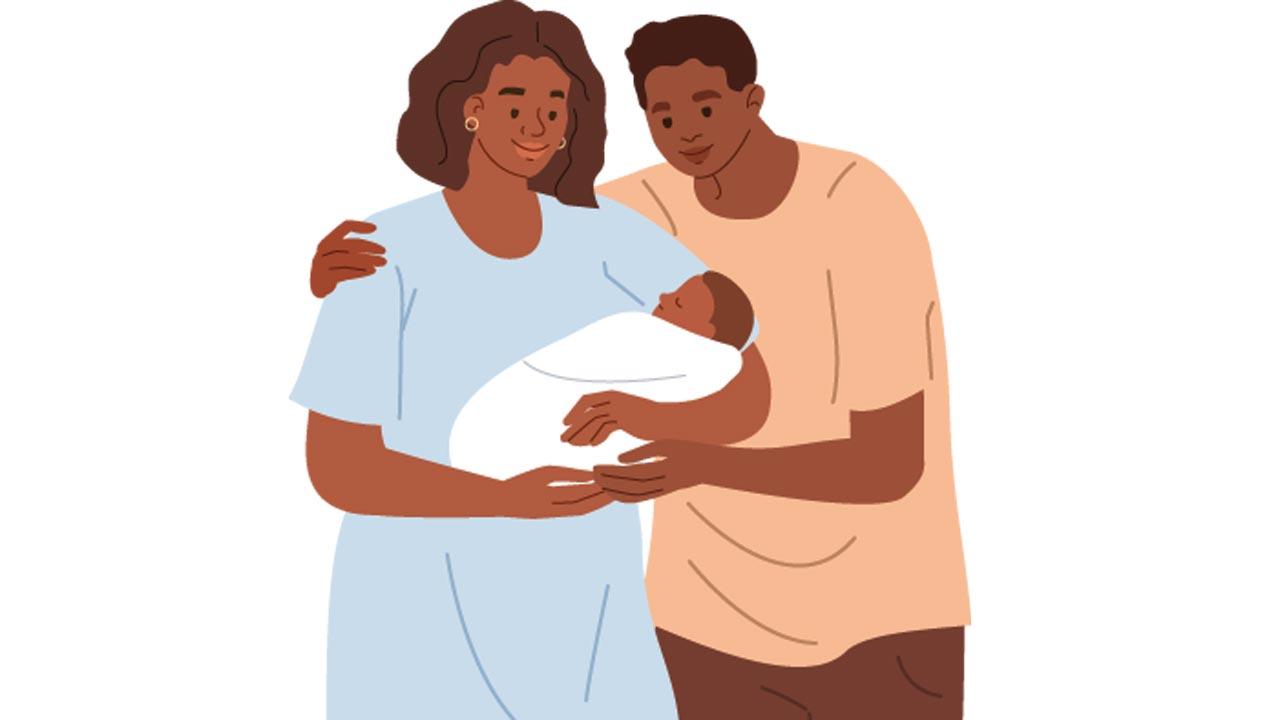
2 Home Study: PAPs apply to the nearest specialized adoption agency or district child protection unit for conducting the Home Study. Home Study Report is valid for three years, after which if PAPs don’t get a child, they have to restart entire process
3 Baby matching: Next, the PAPs get a “referral”, which is basically a baby that is matched to them. This referral is sent in a few months after registration
4 Interview: At this point, the PAPs meet an official from the closest CARA-approved NGO
5 Paperwork: PAPs are asked to fill out more forms, show bank account details, and are asked to initiate insurance policy for the adoptive child
6 Follow up: With all the formalities completed, all that remains is for CARA to confirm adoption. This final step can take anywhere from six months to three years
 Subscribe today by clicking the link and stay updated with the latest news!" Click here!
Subscribe today by clicking the link and stay updated with the latest news!" Click here!







